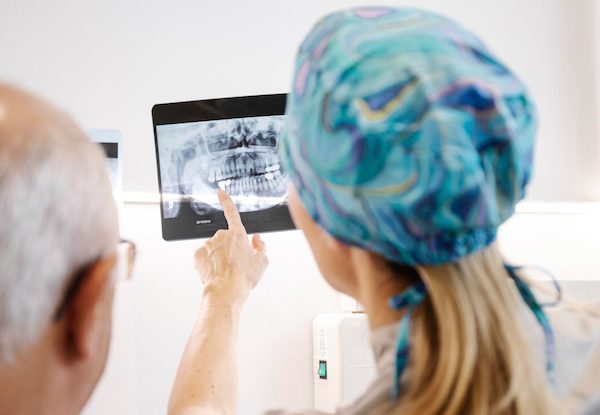TMJ Treatment
TMJ Treatment Applecross
Do you experience pain and clicking in your jaw, neck pain, and headaches? The temporomandibular joint (TMJ) responsible for opening and closing the mouth could be the root of all your problems.
Temporomandibular joints, also called TMJ, are the joints and jaw muscles that make it possible to open and close your mouth. Situated on either side of the head, the TMJ work together when you chew, speak or swallow, including muscles and ligaments and even the jawbone. They also control the lower jaw as it moves forward, backward and side to side.
Temporomandibular joint disorder (TMD) refers to any dysfunction of the TMJ. TMJ dysfunction occurs when the muscles and ligaments surrounding the jaw joints become inflamed and/or irritated.
Causes of TMJ Disorders
TMJ disorders can be caused by injury to the jaw joints or surrounding tissues.
Other TMD causes include:
- Bruxism
- Dislocation of the disc between the ball and socket joint
- Arthritis in the temporomandibular joints
- Stress
- Acute trauma
- An improper bite
Signs and Symptoms of TMJ Disorders

Here are the most common signs and symptoms of TMD:
- Jaw discomfort or soreness
- Headaches
- Pain spreading reaching the eyes, in the face, shoulder, neck, and/or back
- Earaches or ringing in the ears
- Clicking or popping of the jaw
- Locking of the jaw
- Clenching or grinding of the teeth
- Dizziness
- Teeth sensitivity without any oral health disease
TMJ Treatment in Applecross
At Epsom Dental Care Applecross, we take a personalised and innovative approach to treating TMJ disorder.
Your Applecross dentist evaluates your symptoms and learns about your medical and dental history, including the location, onset, and aggravating factors of your TMJ pain.
Give us a call to request your appointment today — simply contact us online or call (08) 9316 0555.
We are located at 729 Canning Hwy in Applecross WA.
Frequently Asked Questions
What is TMJ?
The TMJ (temporomandibular joint) is the hinge that connects the jaw to the temporal bones.
What is TMD?
TMD (temporomandibular joint dysfunction/disorder) occurs when the jaw joints and the associated muscles are disrupted.
What are the symptoms of TMD?
Common symptoms of TMD can include:
- pain in or near the joint,
- a reduction in the jaw movement,
- clicks or noises when yawning or chewing,
- ear symptoms such as ringing in the ear,
- dizziness or sensitivity to sound,
- chronic headaches and
- sleep disorders.
What are the causes of TMD?
While the exact cause of TMD is unknown, muscle tightness and dysfunction of the TMJ may be caused by the misalignment of or trauma to the teeth or jaw, teeth grinding, also known as bruxism, stress, poor posture and arthritis or other inflammatory musculoskeletal conditions.
